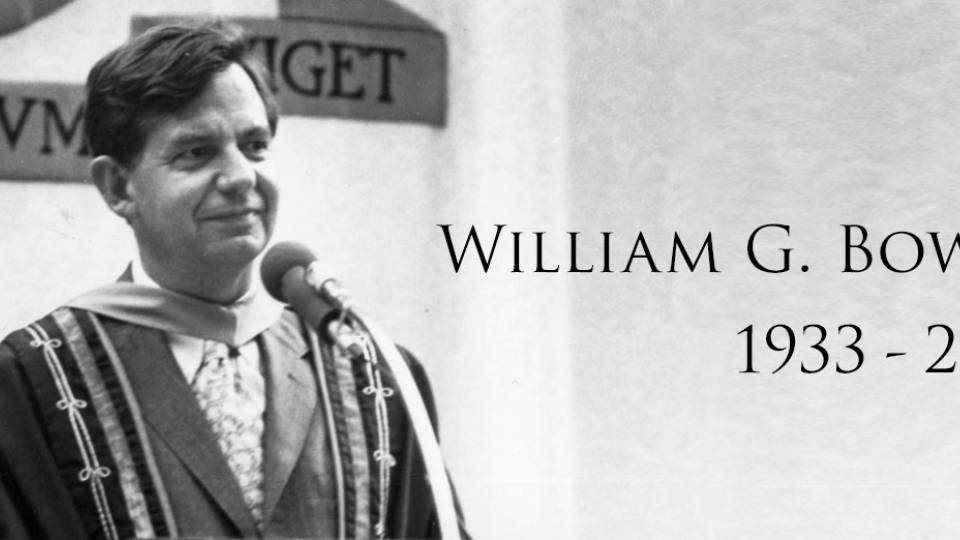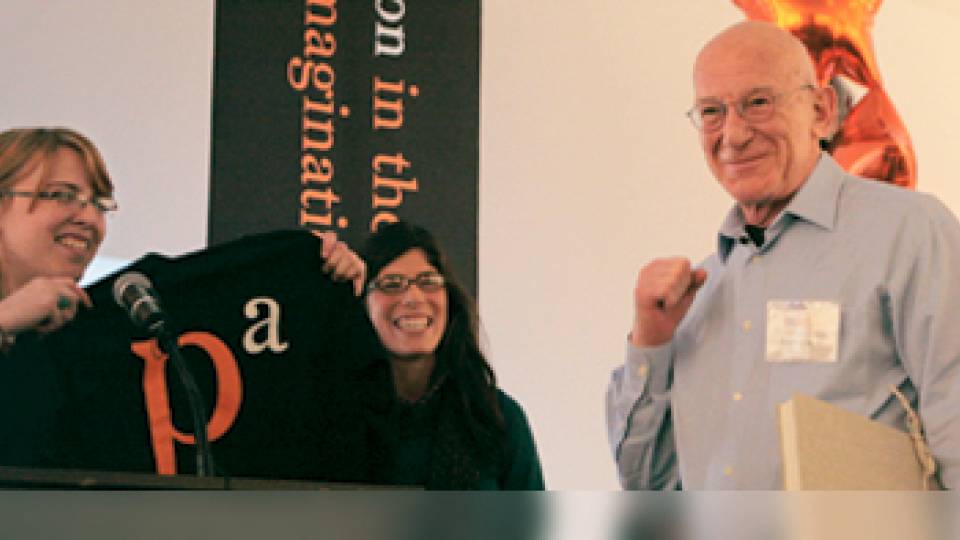The Andrew W. Mellon Foundation has awarded Princeton a $3.3 million challenge grant to support the University’s creation of the Fellows in the Creative and Performing Arts program, which will bring innovative early- to mid-career artists to campus. The program is part of an initiative to make the arts central to the Princeton undergraduate experience(Link is external).
“Interaction with these professional artists will encourage students to explore the arts in ways that will deepen both their own creativity and their appreciation of the artistic calling throughout their lives,” said Princeton President Shirley M. Tilghman. “I am sincerely grateful to the Mellon Foundation for recognizing the importance of Princeton’s arts initiative and supporting fellowships for emerging artists of great potential.”
The University’s arts initiative, presented by Tilghman to the University’s Board of Trustees in January 2006, led to the creation of the Lewis Center for the Arts(Link is external) in 2007 and has allowed Princeton to expand significantly its programs in visual arts(Link is external), musical performance(Link is external), dance(Link is external), theater(Link is external), creative writing(Link is external) and the interdisciplinary Princeton Atelier(Link is external).
The first fellows are expected to be chosen, based on work of extraordinary promise and demonstrated teaching ability, during the 2012-13 academic year and arrive on campus in the fall of 2013.
While on campus, the fellows will create, exhibit and perform their work; teach undergraduates; and participate in seminars and conferences. They also will serve as intermediaries between faculty and students, much as graduate students and postdoctoral scholars do in other academic departments, bringing fresh perspectives to the programs of the Lewis Center for the Arts and the Department of Music(Link is external). They will receive salaries and benefits and have access to studios or other spaces necessary for their work.
“These fellowships will enrich the entire Princeton community by bringing to campus emerging artists who have begun to be recognized in their fields for their achievements and their potential for growth,” said Michael Cadden(Link is external), chair of the Lewis Center. “As artists, they will benefit from a vibrant intellectual and artistic environment, creating exciting new work that will allow them to take the next step in their various professions. As teachers, they’ll serve as role models for students contemplating a career in the arts and for others with a curiosity about what might be involved in making such a choice.”
He added that “the campus and the entire regional community will have the pleasure of collaborating — as fellow artists or as audience members — with choreographers, musicians, poets, playwrights, sculptors, filmmakers and many other kinds of ‘makers’ as they engage in the hard task of artistic research and development.”
The Mellon Foundation’s challenge grant has been matched through the gift of an anonymous alumnus in support of the Fellows in the Creative and Performing Arts, essentially doubling its power and creating four new endowed fellowships over five years. The program will also receive support through the landmark $101 million gift from Peter B. Lewis(Link is external), a member of Princeton’s Class of 1955, that established the Lewis Center for the Arts.
In addition to building on this progress, the Fellows in the Creative and Performing Arts program will enhance the University’s ability to serve as an incubator of artistic talent and a patron of the arts. As part of the Princeton community, the fellows will have opportunities to establish lifelong connections with other artists and scholars and with students, faculty and alumni who have been influenced by their work.
Mellon Foundation President Don Randel, a scholar in musicology and an advocate for the humanities, said: “The Mellon Foundation is pleased to support Princeton’s groundbreaking initiative to integrate the arts into the undergraduate curriculum. We expect that the success of Princeton’s distinctive and ambitious arts programs and support for working artists will inspire other universities to make the arts a fundamental part of their educational mission.”
The Mellon Foundation was formed in 1969 through the consolidation of two existing foundations — the Avalon Foundation, which had been established by Ailsa Mellon Bruce, daughter of Andrew W. Mellon, and the Old Dominion Foundation, which had been established by Paul Mellon, son of Andrew W. Mellon.
Headquartered in New York City, the Mellon Foundation makes grants principally in five core program areas: higher education and scholarship, libraries and scholarly communications, conservation and the environment, museums and art conservation, and performing arts. The foundation has been instrumental in the development of ARTstor, JSTOR and Ithaka, nonprofit organizations engaged in furthering the uses of information technology to benefit higher education around the world.
This support is part of Aspire, the University’s five-year fundraising campaign(Link is external) that concluded on June 30 after raising $1.88 billion. The campaign included a commitment to the visual and performing arts as an essential element of the Princeton experience.


